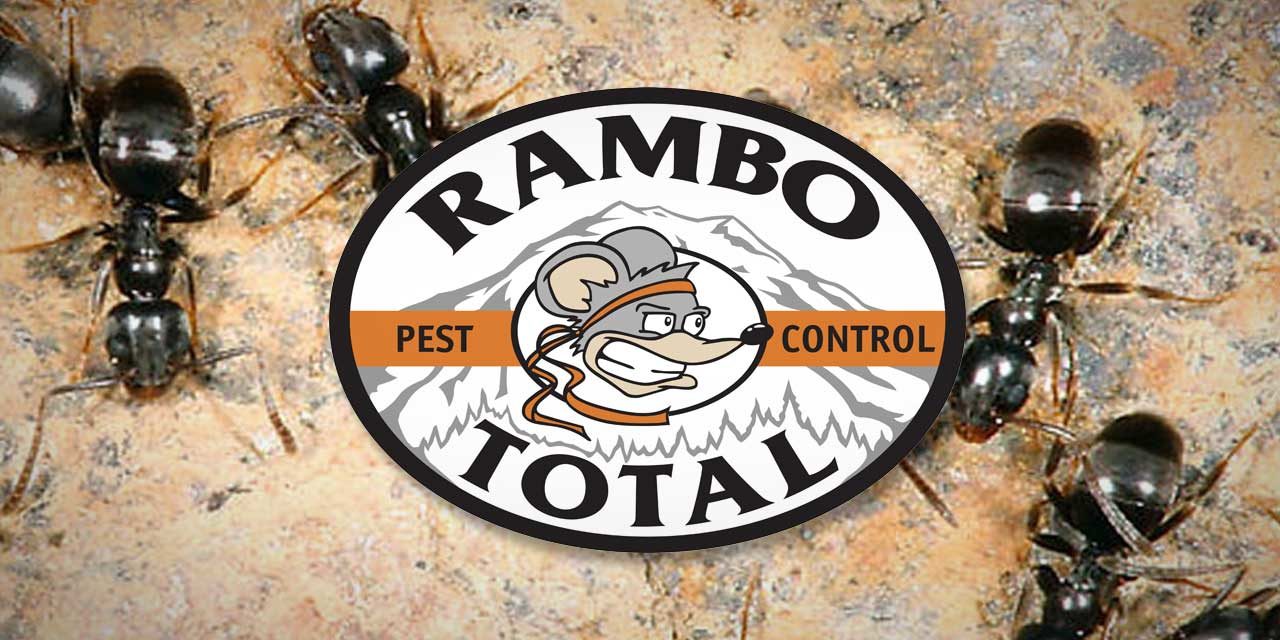SPONSORED:
It’s only March, but we are being inundated with ant calls from new clients seeking our assistance to control ants.
The primary concern being brought to us is for what we call Odorous House Ants.
We are also seeing some Carpenter Ants out and about on the warmer days.
Now is a great time to set up a preventive barrier around your home to keep these pests from turning your home into their home.
Ant colonies don’t go into true dormant state. Instead they experience what is known as diapause.
di·a·pause
/ˈdīəˌpôz/
noun
a period of suspended development in an insect, other invertebrate, or mammal embryo, especially during unfavorable environmental conditions.
During this state of “suspended development” the ants may still be active and gathering food and water, but we generally only see that during a very favorable stretch of nice weather. Alternatively, they could be forced out of one nesting location and into another if the environmental conditions are bad enough. Sometimes heavy rains can push ants indoors in the winter. Regardless of what the weather pattern is currently doing, the fact is it definitely plays a role in when/how/why pests find their way into a structure.
 While it is true that extended periods of sub-freezing temperatures can have an impact on a pest population, many pest species are capable of surviving those periods. Ants for example go into this diapause state and dramatically reduce their physical activity which conserves their energy and in-turn reduces their need to gather food and moisture. We utilize their social nature in many of our control tactics, therefore controlling a colony that is only slighly active can be difficult and slow-going. In periods of high activity they need plenty of food and water to sustain the busy colony, so that is a great time to provide an attractive bait product for the foragers to bring back to their nest areas. Generally only about 10% of a colony participates in the foraging habits which sustain the entire colony. The remaining 90% of the colony never leave the nest site so they can tend to the needs of the queen(s) and the brood. It may seem counterintuitive but this is why we are often able to achieve faster control of a large, highly active colony vs a mildly active colony.
While it is true that extended periods of sub-freezing temperatures can have an impact on a pest population, many pest species are capable of surviving those periods. Ants for example go into this diapause state and dramatically reduce their physical activity which conserves their energy and in-turn reduces their need to gather food and moisture. We utilize their social nature in many of our control tactics, therefore controlling a colony that is only slighly active can be difficult and slow-going. In periods of high activity they need plenty of food and water to sustain the busy colony, so that is a great time to provide an attractive bait product for the foragers to bring back to their nest areas. Generally only about 10% of a colony participates in the foraging habits which sustain the entire colony. The remaining 90% of the colony never leave the nest site so they can tend to the needs of the queen(s) and the brood. It may seem counterintuitive but this is why we are often able to achieve faster control of a large, highly active colony vs a mildly active colony.
With all that said, we know that this past winter really packed a punch between Christmas and New Years, but other than that it was fairly mild. Ants can easily survive a couple weeks of severe cold temperatures, therefore we are anticipating another busy spring for ant calls. Generally we see ant calls really spike in April and May, but this year they are coming in droves already here in early March. What is the best way to fix a problem quickly? That’s easy… avoid it altogether!
If you are concerned about ants that may be trying to move into your home then give us a call. It is much quicker to resolve a pest issue in the early stages than it is later on once they are rooted into a structure. Our friendly office staff can answer many of your questions with a short phone call.
We can be reached Monday through Friday 8 a.m. to 4:30 p.m. at 253-848-6000, or on Saturdays from 9 a.m. until 3:30 p.m.

If this scene looks familiar, you should call Rambo Total Pest Control at 253-848-6000!
Check out our website here:
www.rambopest.com
-
- Address: 4227 South Meridian Ste C-120, Puyallup WA 98373
- Office Phone: (253) 848-6000
- Toll Free: (866) 540-RAMBO (7262)
- Email: [email protected]
EDITOR’S NOTE: Sponsored Posts like this are paid, “Native Advertisements” that help businesses and organizations improve their internet presence and all-important SEO. To learn more about how your business can directly reach our expanding, engaged audience in South King County, please email Theresa Schaefer at [email protected].



Recent Comments